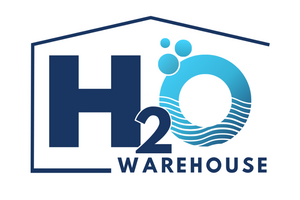Limescale / Calcium
Battling Limescale Buildup: Causes, Effects, and Solutions
Limescale buildup, also known as scale or mineral deposits, can be a persistent issue in households with hard water, affecting plumbing fixtures, appliances, and water-using equipment. Understanding the causes, effects, and effective solutions for limescale is essential for maintaining water efficiency, prolonging the lifespan of appliances, and ensuring optimal water quality.
Causes of Limescale Buildup:
- Hard Water: Limescale buildup is primarily caused by the presence of dissolved minerals, such as calcium and magnesium carbonates, in water. Hard water contains high concentrations of these minerals, which can precipitate out of water and form scale deposits on surfaces, particularly in areas with high water hardness levels.
- Temperature Changes: Changes in temperature, such as heating water in appliances like water heaters or boilers, can accelerate the formation of limescale. Heating causes dissolved minerals to come out of solution and adhere to surfaces, leading to the buildup of scale over time.
Effects of Limescale Buildup:
- Reduced Water Flow: Limescale deposits can restrict water flow in plumbing fixtures, pipes, and appliances, leading to reduced water pressure and inefficient water distribution. Scale buildup can clog pipes, shower heads, faucets, and valves, affecting the performance of plumbing systems and appliances.
- Decreased Appliance Efficiency: Limescale accumulation in water-using appliances, such as water heaters, dishwashers, washing machines, and coffee makers, can decrease efficiency and increase energy consumption. Scale deposits insulate heating elements and reduce heat transfer efficiency, requiring appliances to work harder to achieve desired results.
- Staining and Damage: Limescale deposits can cause unsightly staining on plumbing fixtures, sinks, and surfaces, detracting from the appearance of bathrooms and kitchens. In severe cases, limescale buildup can damage appliance components, leading to costly repairs or premature failure.
Solutions for Limescale Prevention and Removal:
- Water Softening: Installing a water softener is one of the most effective ways to prevent limescale buildup by removing calcium and magnesium ions from water. Water softeners use ion exchange resin to replace hard water minerals with sodium or potassium ions, resulting in softened water that reduces scale formation.
- Descaling Products: Commercial descaling products, such as acidic solutions or descaling powders, can be used to remove existing limescale deposits from surfaces and appliances. These products dissolve scale buildup and restore plumbing fixtures and equipment to their original condition.
- Physical Removal: Mechanical methods, such as scrubbing or scraping, can be used to physically remove limescale deposits from surfaces. Abrasive materials, such as scrubbing pads or brushes, can help loosen and dislodge scale buildup, particularly in hard-to-reach areas.
Alternative Products
If a full water softener system is not suitable, you might consider:
Polyphosphate Dosing Units:
- Prevents calcium from depositing as scale without removing it.
- Suitable for specific appliances like water heaters or coffee machines.
Reverse Osmosis Systems:
- Removes calcium along with other impurities.
- Ideal for drinking water applications.
Product Solution: Water Softener with Ion Exchange Resin
-
How it Works: The system uses ion exchange resin to replace calcium and magnesium ions (responsible for hardness) with sodium or potassium ions. This process effectively removes calcium from the water.
-
Key Features:
- High efficiency in calcium and magnesium removal.
- Regenerates using brine, ensuring consistent performance.
- Protects plumbing and appliances from limescale damage.
- Can handle residential, commercial, or industrial water usage depending on the model.
-
Benefits:
- Extends the lifespan of appliances such as geysers, dishwashers, and washing machines.
- Reduces maintenance costs and improves energy efficiency.
- Provides soft water, which is gentle on skin and hair.
SEE OUR RANGE OF WATER SOFTENERS HERE:
Conclusion:
Limescale buildup poses significant challenges for homeowners, affecting plumbing systems, appliances, and water quality. By understanding the causes, effects, and effective solutions for limescale, homeowners can take proactive measures to prevent scale formation, maintain water efficiency, and prolong the lifespan of plumbing fixtures and appliances. Water softening, descaling products, and physical removal methods offer effective strategies for addressing limescale issues and ensuring optimal water quality and performance in residential settings. Regular maintenance and monitoring of water softeners and appliances are essential for preventing limescale buildup and minimising its impact on household water systems.

Expert Advice
Selecting the right solution depends on the water hardness level and the specific application. We recommend conducting a water test to determine calcium levels before deciding on a product.
If you'd like assistance choosing the best product for your needs, feel free to contact us directly. Our team is here to help!
- Choosing a selection results in a full page refresh.


